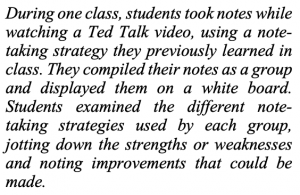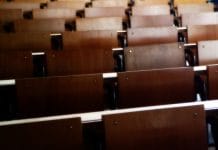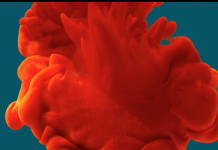Professor Tyler Evans-Tokaryk wants students to understand effective study and research skills and how these can be applied to other courses as well as work outside the classroom. “I wanted to create a sort of community of scholars on campus who are committed to promoting academic skills in a more scientific way,” he said. What’s a better time to start than first year?
UTM118: The Science of Learning, an interdisciplinary course looking at the scientific research behind various learning techniques was first offered in the fall of 2017. Prof. Evans-Tokaryk, also the Director of the Robert Gillespie Academic Skills Centre (RGASC) at UTM, describes the course as a way of “introducing students to peer-reviewed scholarship on academic skills and development and then having a sort of conversation in class about what approaches to academic skills development work and why.”
This course is part of the utmONE program, which consists of foundational courses designed to “allow students to develop a deeper understanding of academic expectations and provide opportunities to enrich academic performance through enhanced study skill development,” Jackie Goodman, the Manager of Orientation, Transition, and Engagement, says. As a result, students enrolling in this course do not require pre-requisites or any prior preparation.
Jackie Goodman, who leads the utmONE program, approached Prof. Evans-Tokaryk about creating a course on the science of learning. The two worked together to develop it.
The Science of Learning has now expanded into three sections and consists of one two-hour lecture and one-hour tutorial each week. Lectures are accompanied by textbook readings and separate in-depth articles. The former provides a general overview of the material, while the latter targets the particular skill for that week. Prof. Evans-Tokaryk also brings in guest lecturers on a regular basis and attributes much of the course’s success to these speakers.
He was initially concerned that bringing in different speakers with varying viewpoints and teaching styles could result in confusion and fragmented learning for the students. However, student evaluations show the opposite effect. Many responded positively to these guest lectures, with Prof. Evans-Tokaryk noting that “students acknowledge and really appreciate the fact that everything they learn can transfer to their other courses” and maximize their learning.
Guest speakers share their experience and knowledge – for example, a mathematics instructor demonstrating how empirical problem-solving can be used as an effective learning technique or librarians leading a session on information literacy – to provide practical examples. Prof. Evans-Tokaryk brings in many speakers from the RGASC, making use of their expertise in learning strategies, Facilitated Study Groups (FSGs) and prepping for exams. “It’s almost like the course is taught by the Academic Skills Centre collectively,” he said.
This class, taught in one of UTM’s Active Learning Classrooms (ALCs), involves more hands-on activities compared to traditional classroom settings. In the ALC, students work in groups at round tables that have their own video projectors and whiteboards. Sometimes, groups share their work with the rest of the class through video projectors; at other times, the class does a “gallery walk” of all the groups’ whiteboards. This allows students to work together to develop transferable skills to other courses including critical reading, oral communication, and collaborative learning skills.
 Starting in week one and continuing throughout the semester, the students tackle a series of connected assignments, including an annotated bibliography, outline, and policy brief, with each one building on the previous. This scaffolding of assignments culminates in the final project – a completed policy brief that “recommends specific strategies the university should use to help students develop the academic skills they need to succeed in their studies and beyond,” Prof. Evans-Tokaryk says. Finally, students share their research through an activity that he calls ‘tabling’.
Starting in week one and continuing throughout the semester, the students tackle a series of connected assignments, including an annotated bibliography, outline, and policy brief, with each one building on the previous. This scaffolding of assignments culminates in the final project – a completed policy brief that “recommends specific strategies the university should use to help students develop the academic skills they need to succeed in their studies and beyond,” Prof. Evans-Tokaryk says. Finally, students share their research through an activity that he calls ‘tabling’.
Each group sets up at a table in a public space on campus “where they share the results of their long-term research with anybody who happens to walk past the table, which will be university and community broadly but largely students.” This random audience, Prof. Evans-Tokaryk says, is “exactly the audience we hope will benefit from learning about this.”
Groups present their research at the tables in a variety of ways. Some may display their findings on a poster, hand out brochures or bookmarks with snippets of their research, while others give out candy to attract people to the table, or use a video projection.
Another key part of the course involves regular self-reflection, which Prof. Evans-Tokaryk highlights as “a key part of the experiential learning component of the course.” There are mini reflections each week, but students also write a longer and more thoughtful reflection at the end of the term. Some may reflect on the final term project, but it is open to any component of the class that they choose.
“The reason the course has been pretty wildly successful is because students acknowledge and really appreciate the fact that everything they learn, they can transfer to their other courses,” Prof. Evans-Tokaryk says. Students have personal experience using these techniques and the scientific research to understand why they work. Both will enable them throughout and beyond their studies.
Find out more about the course below:
https://m.utm.utoronto.ca/course_descriptions.php?id=&course_id=UTM118H5&dep_id=52&type=3&header=
By Elizabeth Chan
Photo by Ryan McGuire, from gratisography























